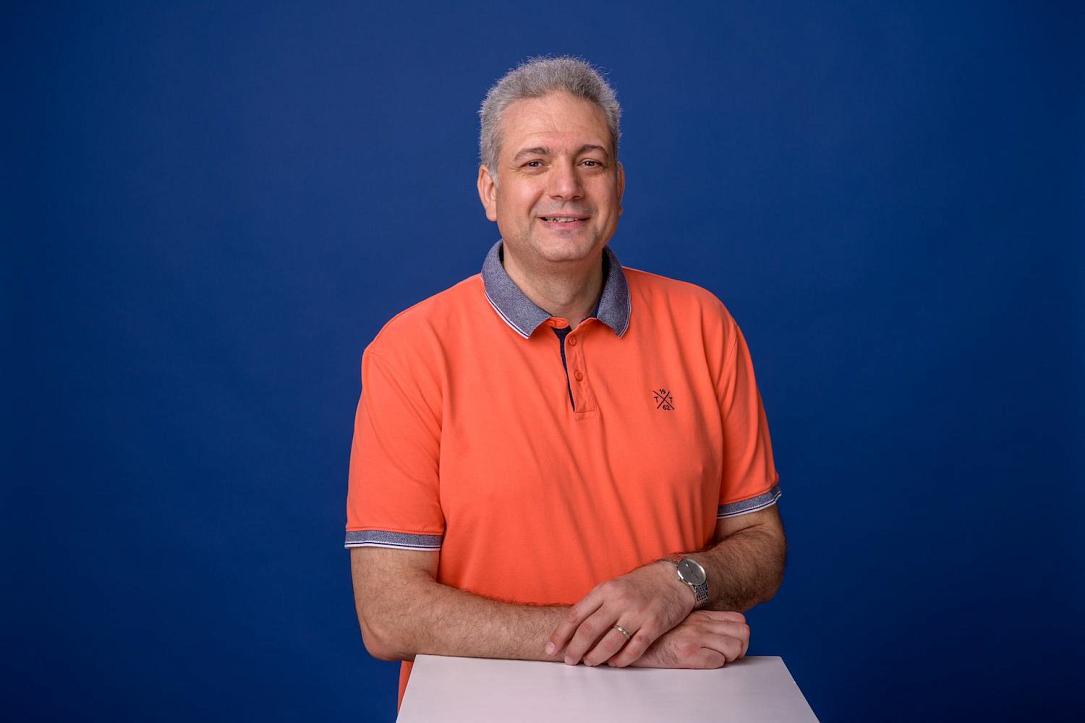(P) Dan Adrian Paraschiv, SoftServe: Romania’s paradox, the landscape for IT development, and war in Ukraine



Ranked in the top 20 countries with the best software developers globally, Romania hosts offices of many major tech players. Recently, a global IT company with Ukrainian roots, SoftServe, opened a delivery center in Bucharest. SoftServe is a long-term partner for such giants as IBM, Cisco, Panasonic, Cloudera, Henry Schein, Spillman Technologies, and many more. It has offices in Ukraine, the USA, Poland, Bulgaria, Chile, Mexico, Colombia, and now Romania.
When you started 22 years ago, what did Romania's IT sector look like?
In the year of my graduation, there were 13,000 professionals and the revenue of the IT software industry was $250 million, compared with the 150,000 specialists we have now. Some of our local companies which started in small apartments are now truly global players, actually very similar to SoftServe’s evolution which was founded by two students 29 years ago.
What makes Romania such an attractive destination for tech companies?
IT skills, cultural affinity, language skills, and communication infrastructure are the main points. There is also a snowball effect as vendors and suppliers settled in, triggering confidence for large companies to come.
With this expertise and contribution to GDP, why does the public sector's digitalization level remain low?
There’s the paradox: we have many qualified IT engineers, but we are not scoring well on digitization compared with other countries. In the public sector, there is a lack of focus and expertise in regard to digitalization, this resulted in hit-or-miss implementations over the years. I hope changes triggered by the pandemic will generate ripple effects.
Are there any solutions to this paradox?
The private sector and NGOs can definitely share good practices, as we have seen locally with Geeks for Democracy and Code for Romania. SoftServe has a long tradition in this area. Our crowdsourcing platform Open Tech empowers associates to contribute time and knowledge to voluntarily develop digital solutions for the public sector, NGOs, and governmental institutions.
Do you see any barriers to the Romanian IT sector growing?
There is great potential, but also many challenges - annually, we lack around 15,000 IT professionals. The education system is struggling due to a lack of funding and personnel, and a long string of partial reforms.
Courses from IT companies can help to solve the problem, so we feel the responsibility to do as much as possible for better education. SoftServe University has 15 years of experience teaching technical skills, languages, training leaders. Almost half of our interns got a job in SoftServe last year. We will launch the first courses in Romania in autumn. The greater plan is to develop relationships with universities and local communities and to have educational initiatives on a regular basis.
What are SoftServe's plans for Romania?
Our plan is to grow to 1000 people by 2025. Currently, we are in demand of DevOps, Java, .Net, Web UI, and Cloud specialists with a combination of different skills. Right now, we are looking for middle and senior people, because we need some level of maturity to launch projects. We will be more comfortable bringing juniors in as soon as we have the initial team.
Specialists passionate about technology and learning are welcomed to our team. We have clients from the UK, Germany, and the US, and work with colleagues from Poland, Bulgaria, Colombia, Mexico, and Ukraine, so you have to be comfortable in a multicultural environment. It's expected that you have a voice and strive to contribute.
What clients' portfolios do you have?
Most of the demand for our services comes from SoftServe's existing clients. We’ve built an impressive portfolio, and some partners have been with us for 20 years. Our associates will have a variety of projects to work on from the start, allowing us to provide competitive salary ranges, exciting technologies, and benefits. We're also considering new local partners as we cover finance, healthcare, technology, retail, and e-commerce.
Is SoftServe considering other locations than Bucharest?
Actually, coworking is a better word for what we have because the company is promoting a hybrid work format. Now the team will primarily work remotely, while we try to figure out a meaningful way to bring people together. In the future, we will consider opening coworking in other major cities.
Has the war in Ukraine impacted the launch in Romania? How do people perceive the company’s Ukrainian roots?
The war in Ukraine is a great tragedy for humanity, and it is harrowing to see people suffering. It certainly affected Romanians: it was shocking to witness the war so close and to understand many of our colleagues are in the very heart of it. We rushed to support colleagues with relocations, donate money to charities, and tried to be more prepared still.
Now the whole world is watching Ukraine and admires its dignity and courage, so there's a lot of curiosity, sympathy, and empathy. Of course, people ask about the situation and worry about their stability and well-being. Finally, they understand the company is global, diversified, and still growing even during wartime. It took a few weeks for Ukrainian teams to recover, and regain previous performance; they managed to retain customers and get new projects. It serves as a great example of the resilience of the Ukrainians, who founded this company, as well as SoftServe’s resilience because the company emerges stronger after each crisis.
People appreciate it and eventually can see many other important things - big clients and projects, innovations and cutting-edge technologies, and opportunities to grow. In some fields, like augmented reality, AI, and robotics, SoftServe's expertise is quite impressive and more developed than in other companies here.
So, on the surface, people are curious about Ukrainian roots, but then they get into the context, and other factors come to the fore. And believe me, we have a lot to offer.
(p) - This article is an advertorial.